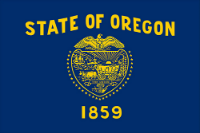
Overview of Oregon Taxes
Oregon has a progressive income tax that ranks among the highest in the nation. The state's median property tax bill exceeds the national median. However, Oregon has no sales tax.
| Household Income Dismiss | Location Dismiss | Filing Status |
| Advanced | |||
| 401(k) Contribution Dismiss | IRA Contribution Dismiss | Itemized Deductions Dismiss | Number of State Personal Exemptions Dismiss |
Have Questions About Your Taxes?
A financial advisor may be able to help. Match with an advisor serving your area today.
Your Income Taxes Breakdown
| Tax Type | Marginal Tax Rate | Effective Tax Rate | 2025 Taxes* |
| Federal | |||
| FICA | |||
| State | |||
| Local | |||
| Total Income Taxes | |||
| Income After Taxes | |||
| Retirement Contributions | |||
| Take-Home Pay |
* These are the taxes owed for the 2025 - 2026 filing season.
Your 2025 Federal Income Tax Comparison
- Your marginal federal income tax rate
- Your effective federal income tax rate
- Your federal income taxes
Total Estimated 2025 Tax BurdenIncome Tax $ Sales Tax $ Fuel Tax $ Property Tax$ Total Estimated Tax Burden $ Percent of income to taxes = % | $ |
- About This Answer
Our income tax calculator calculates your federal, state and local taxes based on several key inputs: your household income, location, filing status and number of personal exemptions.
How Income Taxes Are Calculated
- First, we calculate your adjusted gross income (AGI) by taking your total household income and reducing it by certain items such as contributions to your 401(k).
- Next, from AGI we subtract exemptions and deductions (either itemized or standard) to get your taxable income. Exemptions can be claimed for each taxpayer as well as dependents such as one’s spouse or children.
- Based on your filing status, your taxable income is then applied to the the tax brackets to calculate your federal income taxes owed for the year.
- Your location will determine whether you owe local and / or state taxes.
- Last Updated: January 1, 2026
When Do We Update? - We regularly check for any updates to the latest tax rates and regulations.
Customer Service - If you would like to leave any feedback, feel free to email info@smartasset.com.
Taxes can really put a dent in your paycheck. But with a Savings or CD account, you can let your money work for you. Check out these deals below:
Taxes in Oregon

Oregon State Tax Quick Facts
- Income tax: 4.75% - 9.9%
- Sales tax: None
- Property tax: 0.78% median effective rate
- Gas tax: 40 cents per gallon of regular gasoline
The first thing to know about the state of Oregon’s tax system is that it includes no sales tax. This means that neither state nor local authorities collect taxes on the sale of products or services. Instead, the state generates revenue with a statewide income tax of 4.75% to 9.9%, ranking among the highest in the nation. Local governments levy property taxes, with the typical Oregon homeowner paying $3,895 per year in property taxes.
A financial advisor can help you understand how taxes fit into your overall financial goals. Finding a financial advisor doesn't have to be hard. SmartAsset’s free tool matches you with vetted financial advisors who serve your area, and you can have a free introductory call with your advisor matches to decide which one you feel is right for you. If you’re ready to find an advisor who can help you achieve your financial goals, get started now.
Oregon Income Taxes
Oregon was one of the first Western states to adopt a state income tax, enacting its current tax in 1930. It consists of four income tax brackets, with rates increasing from 4.75% to a top rate of 9.9%. That top marginal rate is one of the highest rates in the country. Only a small subset of taxpayers actually pays that rate, however, as it applies only to single taxpayers making at least $125,000 a year ($250,000 for joint filers). The table below shows the full tax brackets and rates for the state income tax in Oregon.
Oregon generally starts with federal taxable income (or federally defined income) and then applies a set of state-specific modifications under Oregon law. Common subtractions include Social Security and Tier I Railroad Retirement benefits, interest and dividends from U.S. government obligations, and in limited cases, certain types of pension or retirement income. Other adjustments may apply depending on income levels, filing status and the type of income.
There's also the Oregon 529 College Savings Plan tax credit. Single filers with an income between $70,000 and $100,000 can receive up to a $180 tax credit when contributing at least $720. Meanwhile, joint filers in the same income bracket can receive up to $360 when contributing at least $1,440. You can use online tax software to help file your return.
Oregon Tax Credits
There are also a number of state tax credits available to taxpayers in Oregon. Some of the most commonly claimed credits are:
- The Working Family Household and Dependent Care Credit allows low-income and moderate-income families to claim a credit on qualifying child care expenses.
- The earned income credit is available for those making up to $68,675. This tax credit can return up to $8,046.
- A $100 tax credit for political contributions is available to joint filers with taxable income of less than $150,000 and a $50 tax credit is available to other other filers with taxable income of less than $75,000.
- The residential energy credit is available to homeowners who purchase energy efficient devices or install alternative energy sources in their home.
- The retirement income credit is available to persons aged 62 or over.
Oregon Sales Tax
Oregon does not collect sales taxes of any kind, at the state or local level.
Oregon Property Tax
There are 1,200 local taxing districts in Oregon, with property tax rates varying between each one. Tax collections are managed primarily by the 36 counties in Oregon, which assess property and calculate taxes owed. Revenue from the property tax typically goes to support local services such as schools and law enforcement.
Statewide, the effective property tax rate (annual property taxes as a percentage of home value) is 0.78%. This is the 25th in the country. Because of the inherently local nature of property tax collections in Oregon, rates vary significantly between counties.
If you are interested in purchasing a home in Oregon or are looking at refinancing a property, this mortgage guide offers plenty of information on rates, the specifics of getting a mortgage in the Beaver State and details about each county.
Oregon Estate Tax
Oregon is one of a handful of states with an estate tax. Estates with a gross value of at least $1 million are required to file an estate tax return. Estates above that limit face the following rates on the value of the taxable estate:
Note that these are marginal rates, so they only apply to the portion of the estate falling within that bracket.
Oregon Cigarette Tax
The cigarette tax in Oregon is $1.32 per 20-pack.
Oregon Capital Gains Tax
Capital gains in Oregon are subject to the normal personal income tax rates. That means capital gains can be taxed at a rate as high as 9.9%, depending on your total income.
Oregon Alcohol Tax
While Oregon does not have a general sales tax, it does tax the sale of alcohol. Oregon has a tax on wine at 67 cents per gallon and beer is taxed at just eight cents per gallon.

- Oregon’s Crater Lake is 1,943 feet deep at its deepest point. That makes it the deepest lake in North America and the ninth deepest lake in the world.
- The largest city in Oregon is Portland, which lies between the Boring Volcanic Field and the Cascade Volcanic Arc. While the volcanoes are considered dormant, their geologic activity shaped the hills and buttes that now form some of the city’s most scenic neighborhoods.

